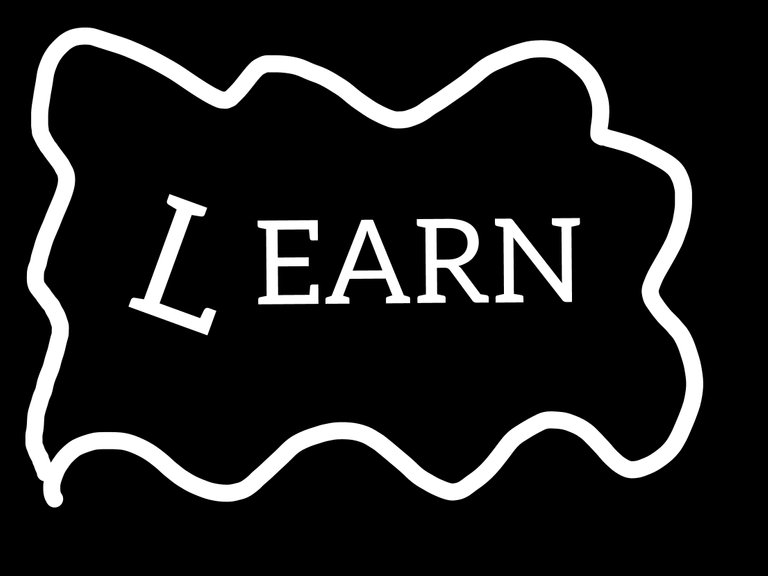Not all learning is the outcome for financial gain. Learning has many facets and categories. However, we can all accept that we learn to improve ourselves. This can be socially, financially, mentally or even physically. Most of the time, It's seen as a stepping stone or a means to an end.
First You Learn, Then You Remove The L
If you've been around the digital space (especially the self improvement space) for awhile, you might be familiar with the above quote. If you haven't, then let me give you a crash course. It's self-explanatory really, inorder to earn you first have to learn. That's the most simple definition of it. It exemplifies the important-ness of the learning process and how it's directly tied to your earning potential.

They say the more you learn, the wiser you become. But you can also say the more you learn, the more you earn. Mind you, this doesn't imply that the more you earn the wiser you become!
The thing is, learning is a never ending process, knowledge is near inexhaustible. When does the L step aside or put on hold so that you can start earning money? Well, that's the topic of this post. So let's dig in.
Factoring The 10,000 Hours
Malcolm Gladwell in his book Outliers told us the average amount of time it will take to become an expert or master at any given field is putting 10,000 hours of practice. Clearly, that's a lot of time. If you put in 1 to 2 hours per day, it will take you a decade. And much of the practice will involve some elements of repetition.
I know this might sound like a huge blow to your expectation but it's how reality is. Building anything worthwhile takes time. Cultivating a skillset in order to monetize it down the road wouldn't happen in just a few weeks or months (Unless you want to be doing a shitty job!). So you have to put your head down and do those reps.
However, you don't have to be a professional expert or master to start bringing in those checks. A 'professional amateur' will do. Have you heard about Learn2Earn? With blockchain technologies like Hive, You don't have to be a professional writing expert for you to start writing blogs and earning crypto from them.
Learning the fundamentals shouldn't take you that much of a time especially if you're a fast learner. Once the basics have been conquered, earning is no longer a problem. That core 20% can provide 80% of the work results which in most cases gets most of the job done. The other 20% work results will be known as you refine your skillset and gain more experience.
The question becomes how fast can you master the fundamentals?
Quality Of Work Over Quantity Of Work
Now that we've tackled the time scale, we can jump nicely into the effort part. Whilst learning, do you give it your all or just do things mechanically? This is where the battle of 'follow your passion' gets interesting. Not everyone has the luxury of following their passion or doing what they love.But then, there's no point in doing something if you won't give it your all. It always shows in the results. For those who didn't choose to follow their passions, your mindset should be 'I get to do this' rather than 'I have to do this'. Learn to grow in love with the journey even if it's temporarily. That way you will be able to give your all during the learning process and speed up your overall journey. Otherwise, you'll just be wasting your precious time.
Think about it, the person who puts in quality practice for an hour everyday versus the person who puts in 4 hours of mediocre or mechanical practice everyday. Who do you think will make real progress and finish the process faster?
In Conclusion
The key to mastering anything is through deliberate practice. How fast you master something depends on how much willed effort you put into it. Give it your all and you'll be done in no time.Tossing out the L isn't much of a timing problem. It's an effort problem. When you master the fundamentals, you can put it on a temporary hold and start earning. That's the trade, first give and then take.
Thanks for reading!
Profile: Young Kedar
Posted Using LeoFinance Beta
